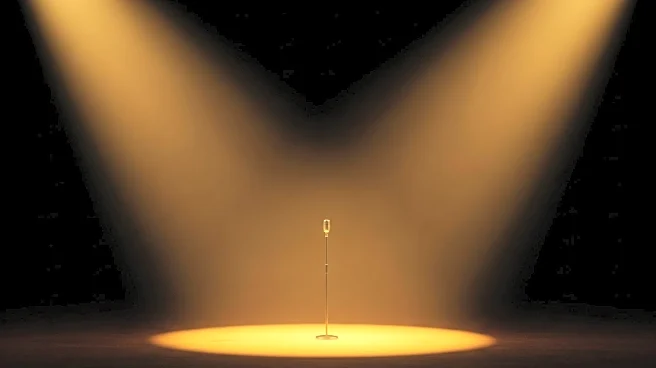What's Happening?
On September 4, 2025, actor Kevin Spacey delivered a speech at an Amsterdam gala while accepting a lifetime achievement award. During his speech, Spacey made a tribute to his late friend Val Kilmer, stating, 'I am thinking of Val tonight.' This remark has reignited discussions about comeback culture and accountability in Hollywood. The tribute, while personal, has been interpreted by some as a test of public forgiveness, given Spacey's past controversies. The speech quickly became a focal point for media outlets, sparking debates about redemption narratives and the role of public figures in addressing their past actions.
Why It's Important?
The significance of Spacey's remark lies in its potential impact on Hollywood's approach to comeback narratives. As a figure with a controversial past, Spacey's public tribute has divided opinions, with supporters viewing it as a gesture of loyalty and critics seeing it as tone-deaf amidst ongoing accountability discussions. This event highlights the complexities of public redemption and the challenges faced by celebrities in navigating their reputations. The debate could influence how studios and PR teams handle similar situations, potentially reshaping strategies around public apologies and career rehabilitation.
What's Next?
The immediate consequence of Spacey's tribute is increased scrutiny on comeback narratives in Hollywood. Industry players may become more cautious in their public statements, with awards speeches potentially evolving into strategic reputation management opportunities. As the debate continues, it remains to be seen which comeback stories will withstand the test of renewed examination and which will falter. The event may lead to a shift in how public figures approach accountability and redemption in their careers.
Beyond the Headlines
This incident raises broader questions about the ethical dimensions of comeback culture. It challenges the entertainment industry to consider the balance between artistic redemption and sustained responsibility. The debate also touches on cultural shifts in how audiences perceive forgiveness and accountability, potentially influencing long-term changes in public expectations of celebrities.









